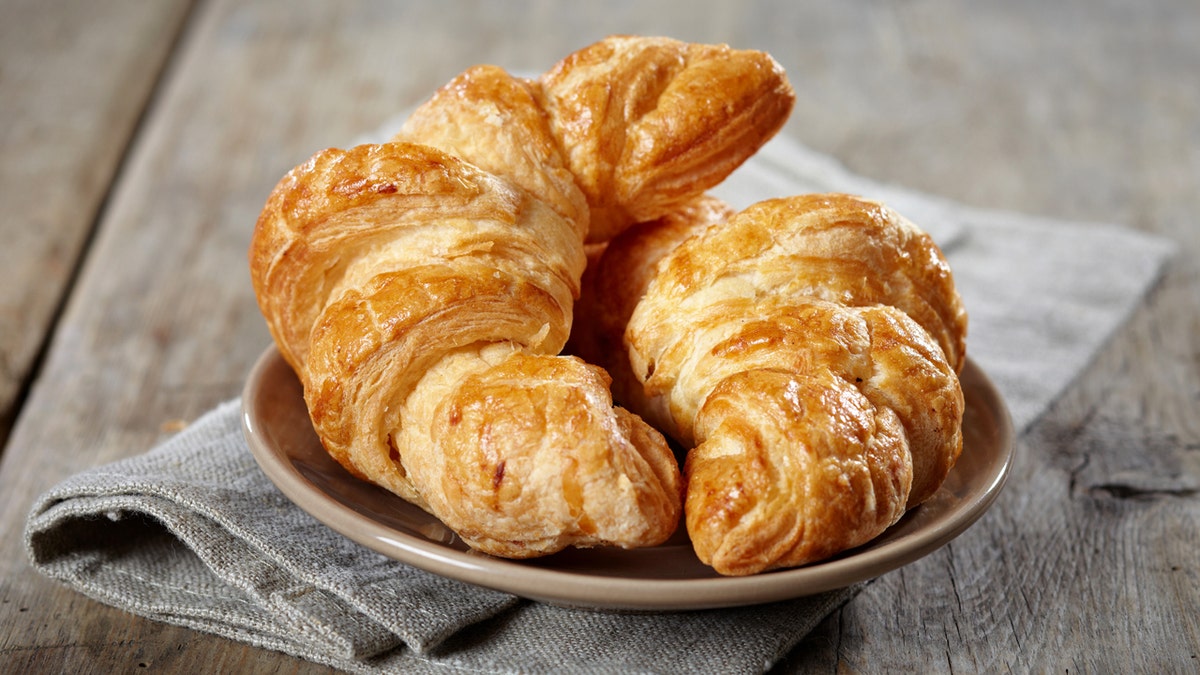A new study may offer welcome news to both cocoa and green tea drinkers: Compounds in high-flavanol cocoa as well as in green tea offer protection to the body after a person eats fatty foods when stressed.
“We know that even just one isolated episode of mental stress can impact the elasticity of blood vessels, which can last for up to 90 minutes,” Catarina Rendeiro, assistant professor in nutritional sciences at the University of Birmingham in the U.K., said via email to Fox News Digital. She is the lead author of the study.
When people are stressed, she said, they tend to crave foods with a higher fat content.
SAN FRANCISCO’S SOURDOUGH IS ‘CULINARY SYMBOL’ AND PART OF 49ERS CULTURE
“We showed previously that the combination of stress and fatty foods prolongs the negative impact of stress in the blood vessels,” she said.
Her latest study, however, shows that drinking certain beverages can combat the negative effects.
The compounds in high-flavanol cocoa as well as in green tea can protect the body from the effects of consuming fatty foods, according to a new study. (iStock)
“If you combine the fatty food with a drink rich in flavanols, it prevents the effect of stress and fat combined,” she said — which “can be used as a strategy to mitigate some of the impact of poorer food choices on blood vessels.”
To test this theory, Rendeiro and her colleagues fed a group of healthy adults a breakfast of “two butter croissants” with 10 grams of salted butter, 1.5 slices of cheddar cheese and 250 milliliters of whole milk. Rosalind Baynham, another author on the study, shared those details in a news release published by the University of Birmingham.
The groups were given either a high-flavanol cocoa or a low-flavanol cocoa drink as well, Baynham said.
COFFEE VS. MATCHA TEA: WHAT DOES YOUR MORNING DRINK CHOICE SAY ABOUT YOU?
A flavanol, Baynham said, is “a type of compound that occurs in different fruits, vegetables, tea and nuts — including berries and unprocessed cocoa.”
These compounds, she said in the release, have known cardiovascular health benefits.
After eating their breakfasts and having a brief rest period, the participants were given a mental math test, which increased in speed over the duration of eight minutes. Each time they got a wrong answer, they were notified, the release said.

The participants in a new study were given a breakfast of croissants plus a cocoa drink — then proceeded to take a math test. (iStock)
The participants were monitored both during the rest period and during the math test.
“This stress task induced significant increases in heart rate and blood pressure, similar to the stress you may encounter in daily life,” the release said.
The study found that the group that consumed the low-flavanol drink had reduced vascular function for an hour and a half after the test was over.
For more Lifestyle articles, visit www.foxnews.com/lifestyle
However, “the findings showed that the cocoa drink high in flavanols was effective at preventing the decline in vascular function following stress and fat consumption,” according to the release.
The results, Rendeiro told Fox News Digital, “can help us make more informed decisions about what we eat and drink during stressful periods.”

Drinking high-flavanol cocoa drinks can prevent vascular function decline in stressful situations, according to a new study. (iStock )
Rendeiro also recommends high-quality, minimally processed cocoa powder.
In addition to lowering blood pressure, it appears that certain types of cocoa, according to a previous report in Healthline, have other properties that may reduce the risk of heart attack and stroke.
CLICK HERE TO GET THE FOX NEWS APP
Flavanol-rich cocoa “improves the level of nitric oxide in your blood, which relaxes and dilates your arteries and blood vessels and improves blood flow,” the publication has noted.
While the U.K. participants were given cocoa drinks as their flavanol consumption during the study, it is not the only source of the compounds, Reindeiro said.
CLICK HERE TO SIGN UP FOR OUR LIFESTYLE NEWSLETTER
“The scientific community recommends a daily intake of 400 to 600 mg/day of flavanols, which can be achieved, for example, by consuming two cups of black or green tea or [having] a combination of berries, apples and high-quality, minimally processed cocoa,” she said.